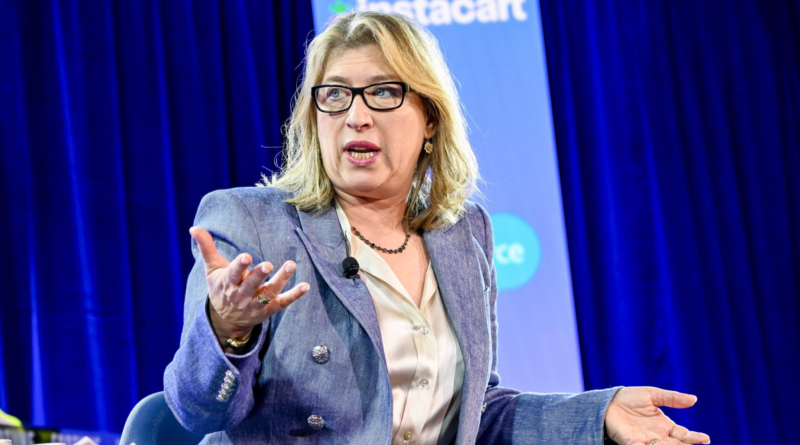The smartphone generation is not okay, and ‘parents are completely clueless,’ says documentarian Lauren Greenfield
When Emmy Award-winning documentarian Lauren Greenfield set out to examine the relationship between today’s teens and social media, she expected parents would be in the background, like the adults in Charlie Brown. But she soon discovered they were an essential part of the conversation.
“I came into this as a parent, not knowing that much. And what I saw that was so shocking was how caring, loving parents are completely clueless about what’s going on, often right next to them,” Greenfield said at Fortune’s Most Powerful Women Summit in Laguna Niguel, Calif., on Tuesday. Calling social media “the biggest cultural influence on young people’s lives,” Greenfield describes it as “a black hole where parents don’t know what’s going on.”
Diving into how the current generation of high schoolers uses their phones for her docuseries, “Social Studies,” which is streaming on Hulu and FX, Greenfield found social media has changed the landscape of youth.
“A big part of childhood now is about getting fame, getting likes, doing branding, cultivating an image,” she said, adding “the loss of innocence comes when one gets their smartphone and basically the whole world is kind of coming at them.”
Seeing the vast difference between how her two sons, ages 14 and 20 grew up, Greenfield recognized that there was an addiction at play. The apps are meant to be addictive, Greenfield said. Part of the key change that must happen is in the hands of tech and the government monitoring these inventions. In the meantime, it’s about how we treat the children.
“The first thing we go to is kind of blaming the victims,” said Greenfiled, noting that this type of outlook “does not work” and “we don’t treat opiate addiction this way.”
While teenagers have always compared themselves to others, now they have “every peer in the world” to measure themselves up against, she explained. It’s not just beauty or body image at play, but also other metrics of comparison, like the race to get into college.
“It’s constant,” Greenfield said.
These issues have been amplified by the algorithm.
“It kind of exploits your most private and delicate vulnerabilities, it takes you by the hand and shows you how to do things,” Greenfield said, adding that the algorithm can prey upon people suffering eating disorders and suicidal thoughts. Indeed, eating disorder online communities are unduly promoted on sites like X. NBC News finds that in just two years, more than 173,000 users joined one of said communities, many of which were young women or teens, writes Kate Tenbarge.
Greenfield calls for a change. “Every other media is regulated, and it’s just kind of shocking that [social media] is not and that also the tech companies have no responsibility for it,” she said. “We need collective action, both in schools, parent groups, regulation, corporate responsibility. All of it.”
Almost every teenager she spoke to as part of the project said they’d rather be in their parents’ generation, before the smartphone was invented. A separate survey from Jonathan Haidt and the Harris Poll, found that almost half of Gen Zers wish TikTok “was never invented.”
Even so, Greenfield recognizes that that is likely out of reach.
“The genie’s out of the bottle,” she said of social media. “It’s here, but it doesn’t have to be the way it currently is.”
The Broadsheet: Covers the trends and issues impacting women in and out of the workplace and the women transforming the future of business.
Sign up here.




